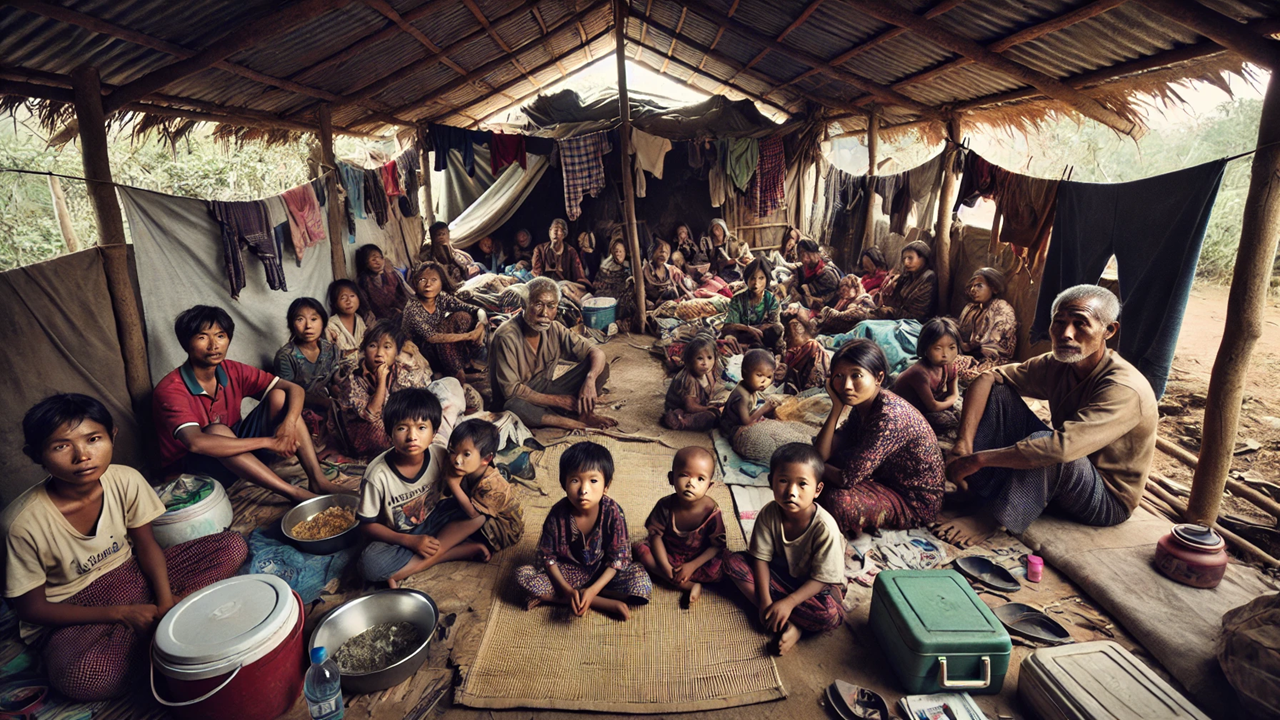UN Urges Humanitarian Aid Access to Myanmar Amid Military Violence Post-Earthquake
In a strong statement, Türk urged the Myanmar military and the National Unity Government to prioritize humanitarian aid over continued military operations.

Volker Türk, the UN High Commissioner for Human Rights, issued an urgent call on Friday for immediate and unhindered humanitarian aid access to the people of Myanmar following the devastating earthquake that struck central Myanmar last week. Türk stressed that despite the announcement of a pause in hostilities by both the Myanmar military and the National Unity Government, this must be followed by swift, unrestricted assistance from humanitarian workers to address the critical needs of those affected by the disaster.
The earthquake, which has already claimed hundreds of lives and left thousands of people displaced, has created a catastrophic humanitarian situation, particularly in regions outside of military control. While some limited humanitarian relief has been allowed in certain areas, much of the affected region remains inaccessible due to the military's ongoing operations, restrictions, and the communication blackout enforced across the country.
In a strong statement, Türk urged the Myanmar military and the National Unity Government to prioritize humanitarian aid over continued military operations. “I urge a halt to all military operations, and for the focus to be on assisting those impacted by the quake, as well as ensuring unhindered access to humanitarian organizations that are ready to support,” Türk said. He went on to emphasize that this tragic event should serve as a turning point toward an inclusive political solution for Myanmar, which has been marred by political violence and military crackdowns since the 2021 coup.
Despite the official announcement of a temporary ceasefire on April 2, reports received by the UN Human Rights Office indicate that military forces have continued their attacks, including airstrikes and artillery bombardments, on communities already devastated by the earthquake. At least 53 reported military attacks have taken place since the earthquake struck, with the military launching airstrikes, drone attacks, and artillery barrages in affected regions.
The military's ongoing operations have hindered the delivery of essential humanitarian aid, with large areas in Sagaing region, Bago, and Shan State remaining unreachable by international aid organizations. These regions are severely affected by the disaster and require immediate relief, yet the military's restrictive policies prevent any meaningful assistance from reaching those in need. Local residents have stepped in to provide support where possible, but the scale of the disaster requires expert assistance that is currently unavailable due to the military's limitations.
Moreover, the military's forced conscription of young individuals, including those assisting with rescue efforts, has further complicated relief operations. Reports indicate that individuals who are helping in the aftermath of the earthquake have been forcibly recruited to join military operations, further depleting the local workforce needed for recovery efforts.
“The situation is dire. Ground sources describe a catastrophic humanitarian situation, especially in areas outside of the military's control,” Türk explained. “There is an absence of relief efforts, a lack of clean water, food, and medicines, and the fear and shock from the disaster have only heightened the suffering of a civilian population already enduring years of military violence.”
The ongoing violence, combined with the military-imposed shutdown of telecommunications and internet services, has made it almost impossible to contact affected communities and properly assess the scale of the damage. These blackouts have exacerbated the humanitarian crisis, as families and communities are unable to communicate with each other or receive critical information about the earthquake's aftermath.
In his statement, Türk also raised serious concerns regarding the fate of thousands of political prisoners still detained by the military under horrific conditions. While the full impact of the earthquake on detention facilities remains unclear, the High Commissioner called for the immediate release of all political prisoners, many of whom have been detained arbitrarily since the military coup in February 2021.
“The humanitarian and protection needs of the civilian population must be addressed without delay and without restriction. Thousands of political prisoners still remain arbitrarily detained in horrendous conditions. It is unclear what impact the earthquake had on their places of detention. They should be released immediately,” said Türk.
Furthermore, Türk underscored the need for international assistance to reach Myanmar through coordinated international mechanisms. The High Commissioner called for support for civil society and community-based networks that are playing a critical role in providing relief on the ground.
“The people of Myanmar have suffered enough. The response to this horrendous disaster must open pathways toward a comprehensive solution that upholds democracy and human rights,” Türk concluded.
As the international community watches, the call for a lasting political solution and the delivery of vital humanitarian aid becomes more pressing. The people of Myanmar continue to endure a tragedy compounded by years of military oppression, and their immediate needs must be addressed without further delay.
- READ MORE ON:
- Volker Türk
- Myanmar
- Earthquake
- National Unity Government










